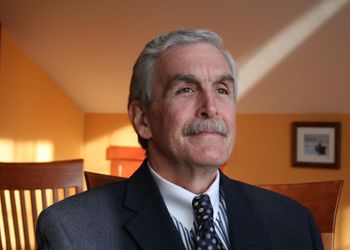Wellness wizard | Dr. Larry Catlett, founder and CEO, Occupational Medical Consulting, Leeds
 Photo/Amber Waterman
Dr. Larry Catlett advocates for workplace wellness from his consulting office in Leeds
Photo/Amber Waterman
Dr. Larry Catlett advocates for workplace wellness from his consulting office in Leeds
A lot of things about health care reform seem mind-numbingly complex — but not everything.
At its core, the challenge is quite simple, says Dr. Larry Catlett, whose firm, Occupational Medical Consulting, has become a leading player in the workplace wellness movement.
“We have to stop focusing on treating people who are sick, and instead concentrate on keeping people well,” he says, “truly addressing what it means to be healthy.”
Catlett began his career as a family practice doctor, then spent eight years as an emergency room physician. “By that time, you’re pretty burnt out on conventional medicine,” he says.
He decided to try his hand at occupational health, because in a business environment, “you can reach so many more people, and do it effectively.”
As medical director at Cianbro, the state’s largest construction company, he designed a wellness program that broke new ground in encouraging employee participation. At the time, Cianbro was projecting that within 10 years, the increased cost of health insurance would eat up its entire profit. Instead, the company successfully “bent” the cost curve and came in under the projection by nearly $8 million.
Catlett decided in 1996 to expand his program through OMC, based in Leeds, and now has 14 Maine clients, as well as seven more in and out of state, that lease the tracking software he pioneered. Many of the Maine clients are construction and manufacturing firms, such as Sargent Corp., R.J. Grondin, Duratherm Window and Maine Machine Products. But the list also includes Norway Savings Bank, Community Concepts, Sebasticook Valley Hospital and the city of Auburn.
The sharply rising cost of insurance has made it easier to sell wellness. Catlett said the cost of a comprehensive wellness program is about 2% of the cost of health insurance premiums — significant, but far less than average annual increases over the last decade.
But while the concept of wellness may be simple, designing effective programs is not. “We’ve sometimes approached wellness as if sending out a newsletter and telling people what they need to do is enough,” he says. “That doesn’t work. Unless you engage your employees and show them how being healthy will make a real difference in their own lives, behavior doesn’t change.”
Quoting a 70% increase in heart attack risk to a 35-year-old construction worker isn’t likely to hit home, he said. “But if you tell them about how many more years they’ll be able to go deer hunting, you can make an impression.”
The example is not accidental. Catlett is an accomplished bird hunter, though he insists his annual forays are now more about “exercising the dogs” than shooting game. “Unlike fishing, you can’t put the birds back,” he says.
Catlett says there are useful elements of the health reform law enacted by Congress, including incentives for wellness programs, but that the major challenges in containing costs lie ahead.
“As long as medicine is practiced as a volume-based series of procedures for doctors, we’ll continue to have lots of volume, and no time to actually meet with patients and find out what they need,” he says. Paying for health consultations, rather than procedures, ought to be the goal, Catlett says.
The difficulties may seem insurmountable, but Catlett believes businesses will rise to the challenge. “All the facts and figures show us that our system is unsustainable, as it was for Cianbro. From my travels, I see that Maine is ahead of the curve, that we can be a leader for other states.”
Maine’s chief disadvantage is that, with so many small businesses, it’s hard to make standard wellness programs scalable and affordable. Yet Catlett sees that as just another challenge on the way to a workplace that finally focuses on employee health, not medical procedures.
“This is a huge shift in perspective, but it’s coming to Maine, and it will start with the work force.”
Douglas Rooks
Read more
On a roll | Tony Jabar, CEO, Cerealus Holdings LLC, Waterville
Snappy management | Bob Neveu, co-founder and president, Certify, Portland
Capital conduit | Betsy Biemann, president, Maine Technology Institute, Gardiner
Distributor chap | Ron Dennis, CEO, Dennis Paper and Food Service, Bangor
The 2010 Next List | Ten people shaping the future of Maine's economy
Wave wrangler | Chris Sauer, president and CEO, Ocean Renewable Power Co., Portland










Comments